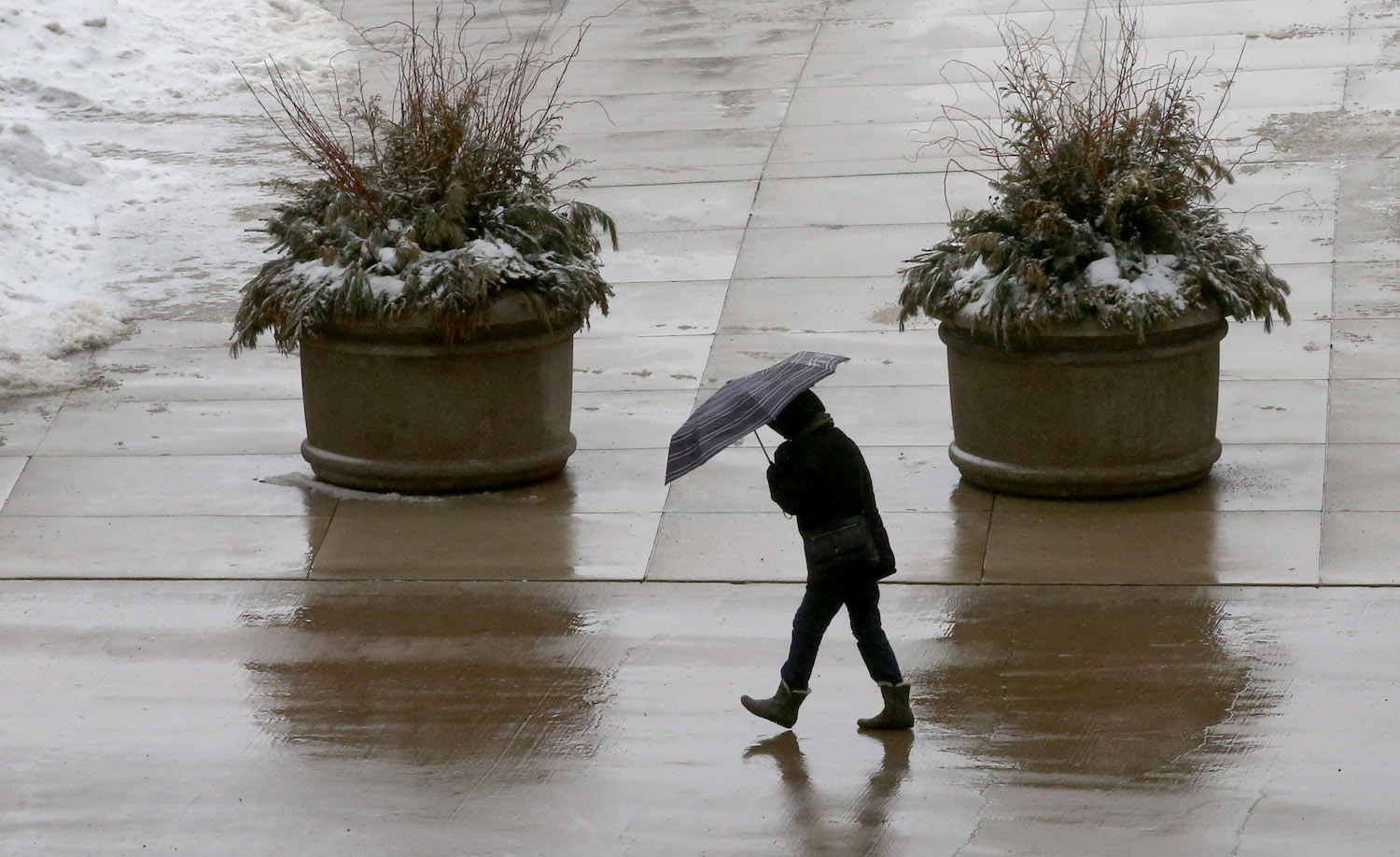In the spoken-word intro to the song “Dead End Street,” off his 1967 album Too Much!, Lou Rawls introduced easy listening fans to a piece of South Side vernacular. In the smoothest way possible, of course.
I was born in a city they called the Windy City
And they call it the Windy City because of the Hawk.
Almighty Hawk,
Talking about Mr. Wind kind of mean around winter time.
When Rawls was coming up in the Ida B. Wells Homes, the Hawk was the name for the cold autumn and winter wind blowing off Lake Michigan.
“When you’d come out the projects, and that wind hit you, we’d call it the Hawk,” said an elder from my church who grew up in the Robert Taylor Homes in the 1950s and ’60s. “The old folks still say it. I don’t know if the young folks say it. We still say icebox, too.”
Now that the Hawk has returned to our city for a three- or four-month stay, it’s worth looking at the origins of this Chicago phrase. It is not, as the name might suggest, an attempt to compare the cutting, slicing wind to a sharp-beaked, sharp-clawed raptor. (“In Chicago, the Hawk not only socks it to you, he socks it through you, like a giant razor blade blowing down the street,” Rawls explained vividly.) Rather, it is an abbreviation of “Hawkins,” or “Mister Hawkins,” an African-American folk personification of the winter wind, rather like Jack Frost.
“Chicago’s wind is called ‘Hawkins,’ or ‘The Hawk,’ etymologist Barry Popik wrote on his blog, The Big Apple. “The origin of the name is a mystery, but one thing is certain: it didn’t originate in Chicago.”
According to Popik, the first printed mention of “Hawkins” was in the January 3, 1877, edition of the Chester, Pennsylvania, Daily Times, in an article titled “When Dat Soup House Start”: “Yesterday, while walking along Third street, we met that well-known colored man Minus, and saluted him with the time of day, adding that Hawkins was out pretty strong to-day.”
Most of the early references to Hawkins appear in mid-Atlantic newspapers, mainly in Pennsylvania, Maryland, and Washington, D.C. That makes its association with Chicago an even bigger mystery, since those states were not sources of the Great Migration. Mister Hawkins did not officially arrive in Chicago until October 24, 1936, when an item in the Defender noted, “these cold mornings are on us — in other words ‘Hawkins’ has got us.”
At some point in the next 30 years, before Rawls recorded “Dead End Street,” Chicagoans shortened Hawkins to simply “The Hawk.” The Hawk made another musical appearance in Steve Goodman’s 1981 song “A Dying Cub Fan’s Last Request,” which begins “By the shores of old Lake Michigan/Where the hawk wind blows so cold.” (This was six years before Andre Dawson joined the Cubs, giving “The Hawk” a different meaning at Wrigley Field.)
Rawls, however, was not correct that the Hawk is the reason Chicago is called the Windy City. That nickname was first attached to our city in 1876, in a Cincinnati Enquirer headline. At the time, both cities were vying to become the capital of the Midwest. Cincinnati was losing, so when a tornado swept through town on May 6, the newspaper cracked that not only was Chicago’s weather full of wind, so were its boastful, self-promoting citizens. Chicago does not even make this list of the 20 windiest cities in the U.S., yet we persist in using a meteorologically inaccurate handle that was applied to us as an insult. The Windy City Rollers roller derby team. The Windy City Times, an LGBTQ newspaper. Windy City Boxing, a gym. Windy City Hot Dogs, a takeout stand.
Change your names, all of you. Chicago would be better known as the Hawk City. We may not have the swiftest winds, but if you’ve ever stood on the shores of Lake Michigan when the temperature is nine degrees, and felt the Hawk slashing up the sleeves of your down jacket and under the cuff of your beanie, you can testify we have the most painful.




